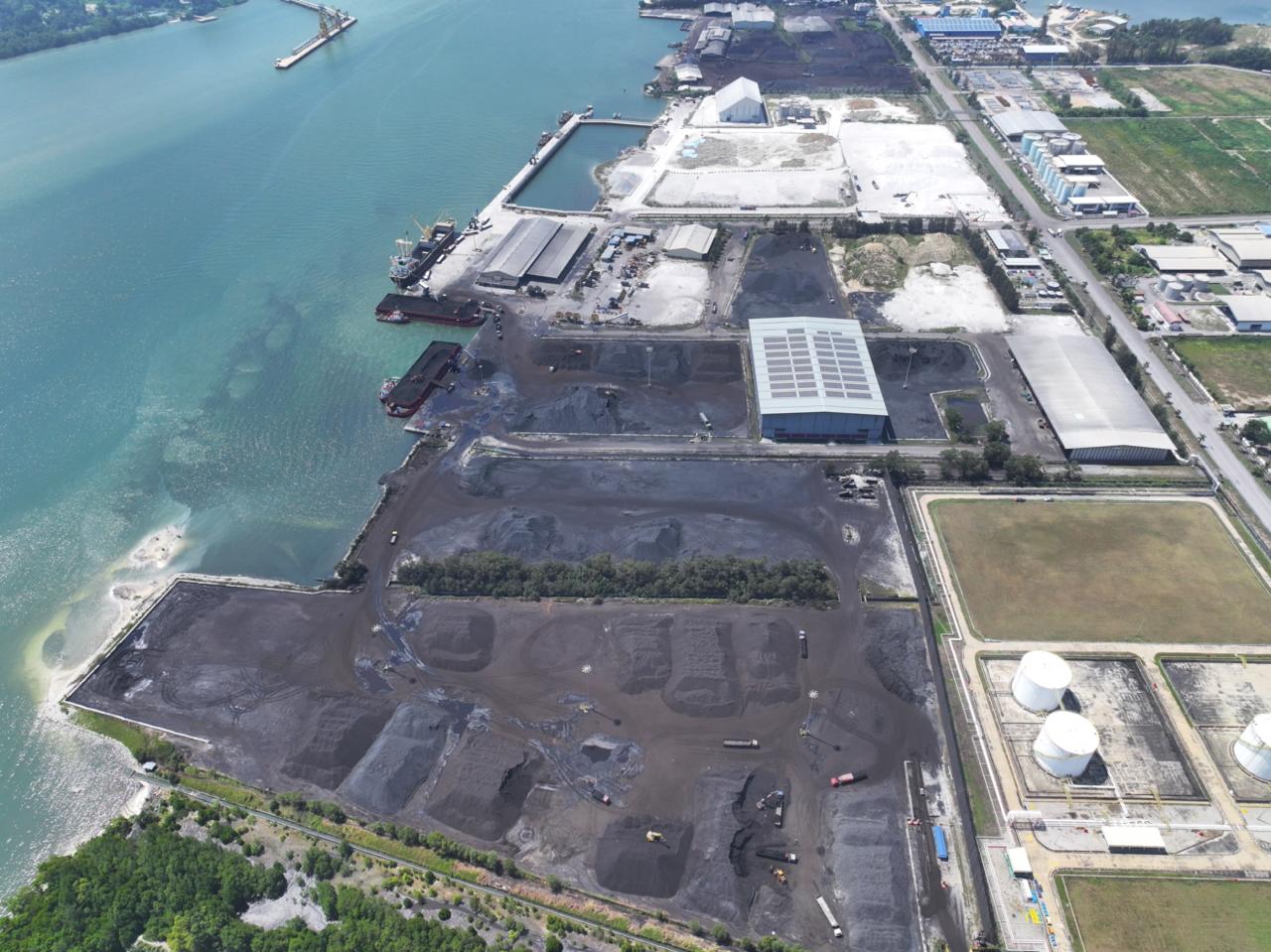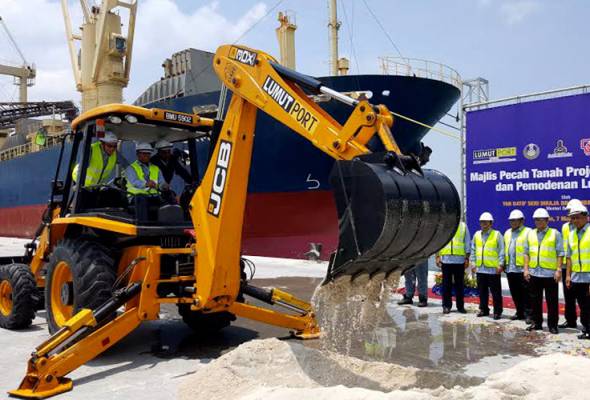When people think of ports, the first image is often ships docking and cargo being unloaded. But a modern port is much more than that. At Lumut Port, storage is not just about space, it is about efficiency, flexibility and reliability that supports industries in Perak and beyond.
“Cargo handling and logistics are our core functions,” says Chief Operating Officer Tuan Haji Mohd Rusly Tamsir. “We don’t just move goods from ship to shore. We provide the storage, the systems and the planning that keep supply chains running smoothly.”
A hub for bulk and breakbulk cargo
Unlike container-heavy ports, Lumut Port has carved out its niche as a bulk and breakbulk specialist. About 80% of its operations involve dry and liquid bulk, such as limestone, silica sand, clay, petroleum products and chemicals, while 20% comes from breakbulk cargo like steel products, machinery, timber and cement in jumbo bags.
This focus allows the port to serve industries that are central to Malaysia’s economy, especially in Perak, where quarrying, construction and energy production play key roles. Local limestone and silica are exported overseas, while imports like petroleum coke, fertilisers and industrial machinery support domestic manufacturing.
To support this diverse cargo mix, Lumut Port has built a variety of storage options:
- Open yards for steel, timber, oversized project cargo and stacked dry bulk like limestone
- Covered warehouses for bagged cement, fertilisers, high-value machinery and sensitive steel products
- Tank farms for liquid bulk such as diesel, gasoline, biofuels and edible oils
This combination of facilities means the port can handle anything from raw minerals in large piles to refined fuels stored securely in modern tanks.
The average turnaround time or dwell time for goods at Lumut Port is not a single figure but varies significantly by cargo type. The strategy is to act as a throughput hub rather than a long-term warehouse. The general principle is the more valuable or time-sensitive the cargo, the shorter its dwell time.
| Cargo Type | Average Dwell Time (Estimate) | Key Reasons |
| Dry Bulk (e.g., Limestone, Coal) | Medium (15-30 days) | Handled in large volumes with dedicated equipment. Transporter usually can handle around 1000MT a day. |
| Breakbulk | Long (31- 45 days) | Awaits customs clearance, pre-purchase inspection, and scheduling of specialised trucks for delivery to factories/construction sites. |
| Project Cargo | Variable (Could be month) | Highly dependent on the project timeline. May be stored until all components of a large project arrive and are ready for a single convoy to the site. |
| Transshipment Cargo | Short (7-15 days) | cargo is waiting for its connecting feeder vessel to another regional port. Dwell time is tied to the shipping schedule. |
Managing capacity with technology and foresight
Thirty years ago, Lumut Port began with modest facilities to handle mineral exports. Today, its storage capacity has multiplied many times over, with expansions driven by careful planning through its Business Strategy Plans (BSPs).
Projects like Lumut Maritime Terminal 2 (LMT2) were designed to separate white cargo (cement, silica, limestone) from black cargo (coal), improving quality control and reducing pollution. The planned LMT4 will handle coal exclusively, freeing LMT1 to focus on white cargo and even transform into a liquid bulk hub. These developments will raise LMT1’s capacity from 5.5 million metric tons per year to 7 million, with an additional 2.5 million metric tons of growth potential.
Managing storage in real time is another critical advantage. Lumut Port relies on its Port Management System (PMS), which acts as the digital nerve centre of operations. The PMS gives live visibility of every cargo item, automates storage allocation and optimises yard space to prevent bottlenecks.
During peak seasons, the port applies just-in-time practices, encouraging direct delivery to reduce dwell time. Trucks and barges are coordinated so that cargo spends hours, not days, in storage. Demurrage policies further ensure that space is used efficiently.
The impact of Lumut Port’s storage capacity goes beyond the gates of the terminal. It acts as a trade enabler for industries across Malaysia:
- For construction and manufacturing: it ensures uninterrupted supply of raw materials like steel and limestone
- For agriculture: it handles fertilisers, bagged goods and edible oils critical to farming and food production
- For energy: it provides secure storage for petroleum products, directly supporting fuel security
Lumut Port also connects deep-sea shipping with riverine transport networks, acting as a gateway between global trade routes and inland industries. By linking large vessels with smaller barges, it reduces costs and improves competitiveness for businesses located far from the coast.
This role directly contributes to Perak’s economy by generating state revenue, creating jobs and reducing urban migration. About 70% of the port’s workforce comes from Perak, with most from Manjung itself. Nationally, Lumut Port eases pressure on major hubs like Port Klang by providing specialised capacity for bulk and project cargo.
Expanding for the future
With demand for storage continuing to grow, Lumut Port is already investing in the future. LMT3 and LMT4 are part of a greenfield expansion to increase capacity and efficiency. New dedicated areas for different cargo types will reduce congestion and improve handling.
Innovation also plays a part. By building on its PMS platform, the port is integrating data-driven yard planning, automated gate processing and performance dashboards to optimise operations further. The goal is not only to add more space but to use every square meter more intelligently.
In the words of the Lumut Port team:
“Storage is not just about keeping goods safe. It is about enabling trade, creating jobs and making Perak and Malaysia more competitive in the global economy.”
With its unique cargo mix, advanced storage facilities and ongoing expansion, Lumut Port continues to strengthen its position as the pearl of Perak and a rising logistics hub in Southeast Asia.
#LumutPort #LMT #MaritimeExcellence #PortExpansion #Logistics #StorageSolutions #Sustainability #Perak #Malaysia





